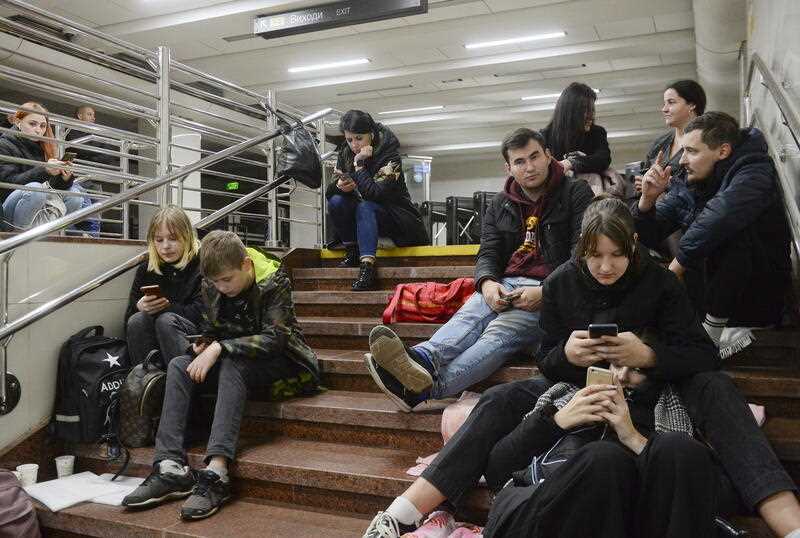Twelve ships carrying grain have left Ukrainian ports despite Russia abandoning a UN-backed deal to guarantee exports from the war zone, suggesting Moscow has stopped short of reimposing a blockade that might have caused world hunger.
Air raid sirens blared across Ukraine and explosions rang out in Kyiv as Russia rained missiles down in renewed air attacks.
Ukrainian officials said energy infrastructure was hit, knocking out power and water supplies in several areas.
But the resumption of food exports from Ukrainian ports suggested that at least one dire scenario had been averted for now.
International officials had feared that Moscow would reimpose a blockade on Ukrainian grain, after Russia announced on Saturday that it was withdrawing from the UN-backed program that escorts cargo ships through the Black Sea.
“Civilian cargo ships can never be a military target or held hostage. The food must flow,” tweeted Amir Abdullah, the UN official who coordinates the program.
Shortly after, Ukraine confirmed that 12 ships had set sail. The 354,500 tonnes of grain they carried was far more than typically leave in a single day, suggesting a backlog was being cleared after exports were interrupted on Sunday.
Ukraine and Russia are both among the world’s largest exporters of food. For three months, the UN-backed deal has guaranteed Ukrainian exports can reach markets, preventing what international officials had said could have been global famine.
The news that Moscow was pulling out of the deal had sent global wheat prices soaring by more than 5 per cent on Monday morning.
Moscow said it was forced to pull out of the shipping deal after blaming Kyiv for explosions that damaged Russian navy ships in a Crimean port on Saturday.
Ukraine has neither confirmed nor denied it was behind those blasts but says Russia’s navy is a legitimate military target. Moscow said the blasts were caused by a fleet of sea and air drones.
The United States accused Russia of using food as a weapon, and Ukrainian President Volodymyr Zelenskiy said Moscow was “blackmailing the world with hunger”. Russia denied those accusations but said that with its naval forces damaged it was no longer able to guarantee safe shipping.
The ships that sailed on Monday included one hired by the UN World Food Program to bring 40,000 tonnes of grain to drought-hit Africa.
“Even if Russia behaves hesitantly because it didn’t receive the same benefits, we will continue decisively our efforts to serve humanity,” Turkish President Tayyip Erdogan, who helped mediate the grain deal, said in a speech.
“Our effort to deliver this wheat to countries facing the threat of starvation is evident. With the joint mechanism that we established in Istanbul, we contributed to the relief of a global food crisis,” he said.
Russia’s missile strikes during the Monday morning rush hour repeated a tactic it has pursued this month of targeting Ukrainian civilian infrastructure, especially power stations.
Ukraine’s Prime Minister Denys Shmyhal said 18 targets, mostly energy infrastructure, were hit in missile and drone strikes on 10 Ukrainian regions.
“Another batch of Russian missiles hits Ukraine’s critical infrastructure. Instead of fighting on the battlefield, Russia fights civilians,” Foreign Minister Dmytro Kuleba said.
“Don’t justify these attacks by calling them a ‘response’. Russia does this because it still has the missiles and the will to kill Ukrainians.”
Foreign ministry spokesman Oleg Nikolenko said the missiles had caused electricity and water outages.
“Russia is not interested in peace talks, nor in global food security. Putin’s only goal is death and destruction,” he said.
The US ambassador to Kyiv, Bridget Brink, tweeted: “Like millions of Ukrainians, our @USEmbassyKyiv team is once again taking shelter as Russia continues its callous and barbaric missile strikes on the people of Ukraine in an effort to leave the country cold and dark as we approach winter.”
Get the latest news, sport, entertainment, lifestyle, competitions and more delivered straight to your inbox with the Canberra Daily Daily Newsletter. Sign up here.



